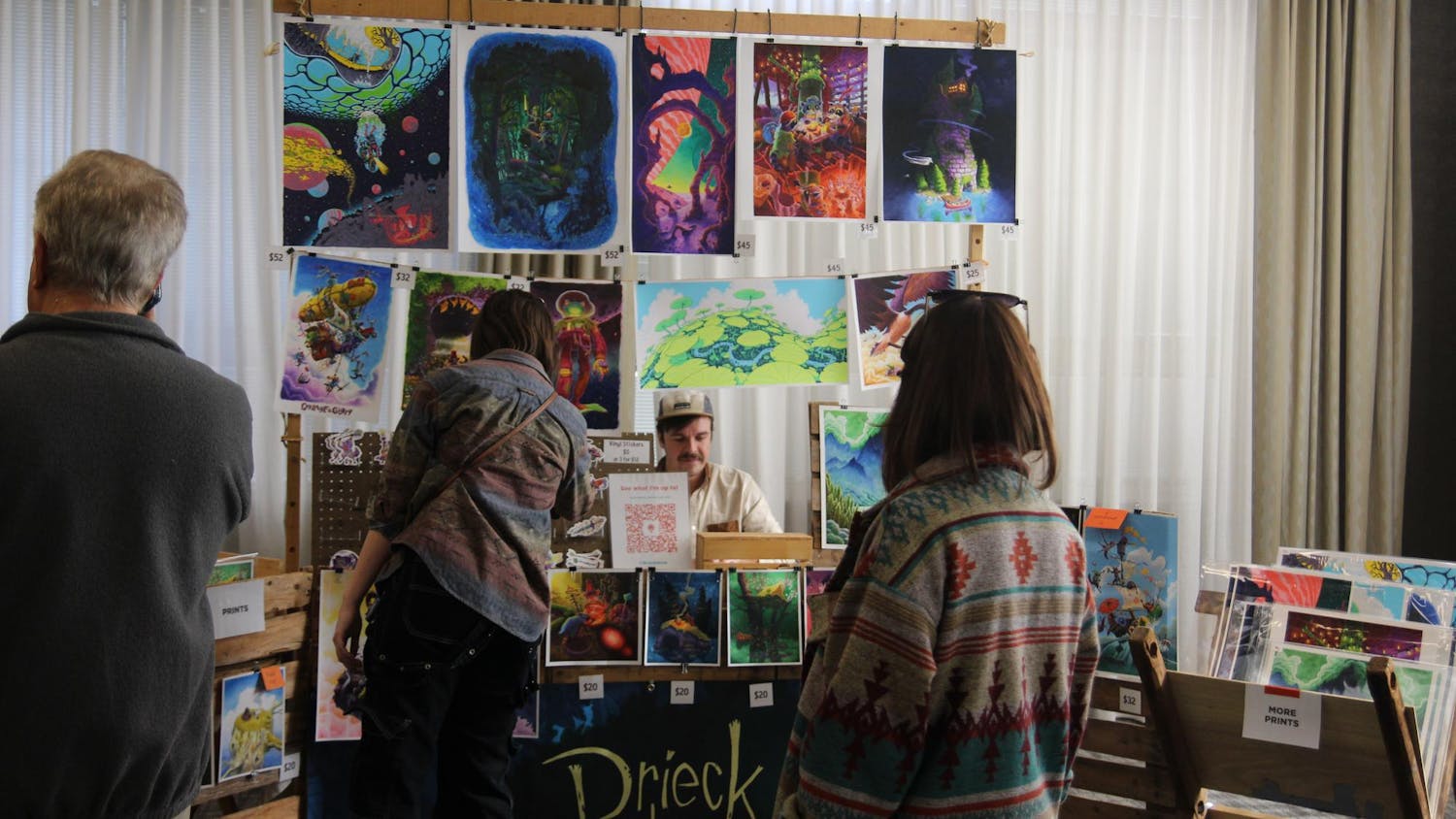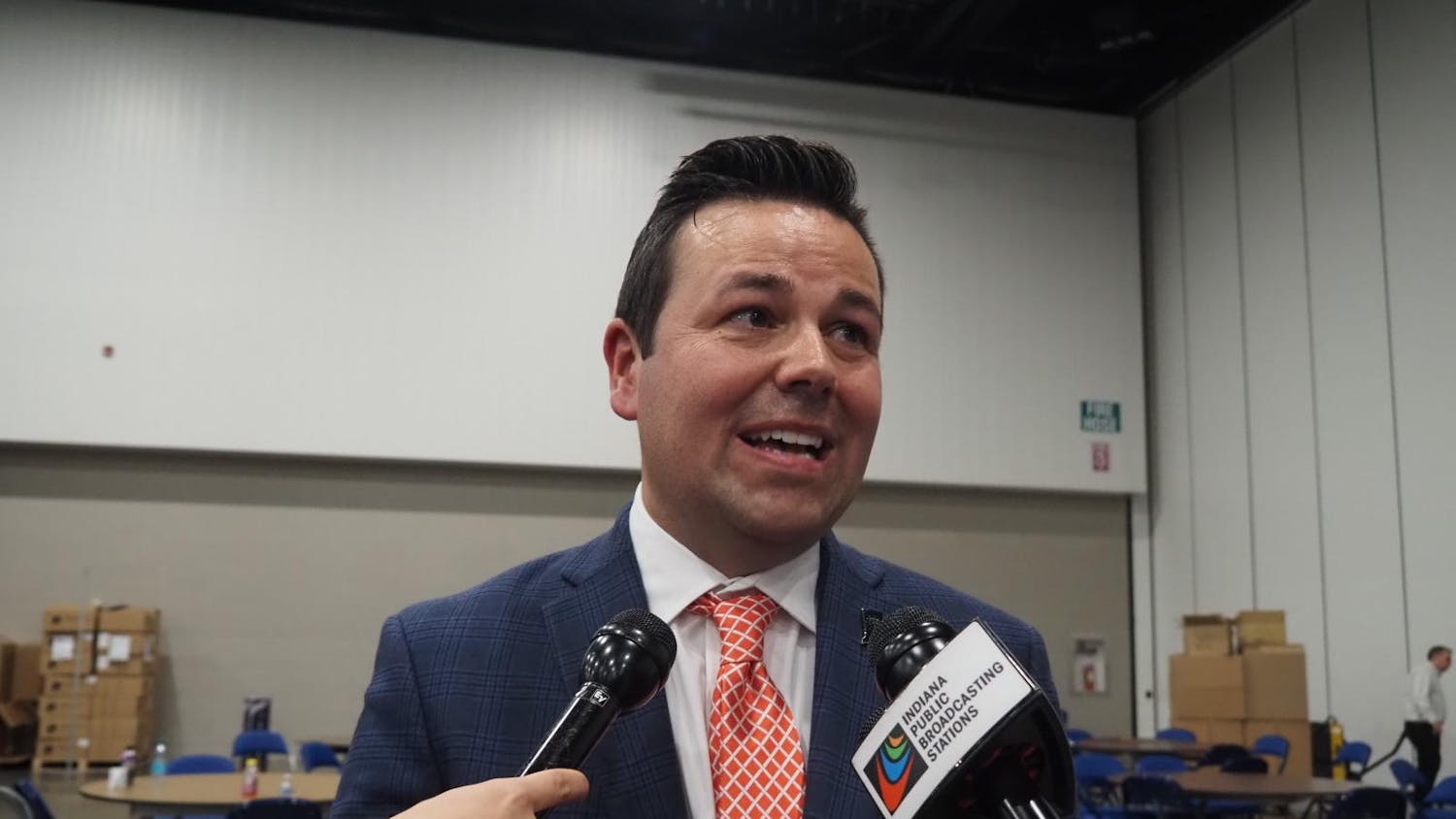Major Broadway production shutdowns and drastic decreases in symphony ticket prices are just two examples of the immediate effects the struggling economy is having on most arts organizations.
But for at least one more year, IU’s theater and music programs have remained financially stable.
Department of Theatre and Drama
This year is the Department of Theatre and Drama’s 75th anniversary. While the department maintains its influence on campus, it seems like a fantasy world amidst the current recession, when the future of many theaters – even those on Broadway – are uncertain.
“We run the arts business as if it is in a recession every single day,” said Patricia Kennedy, arts administrator of the theater department. “So we don’t overreact to it when it comes.”
Before Kennedy joined the department in July, she had more than 40 years of experience in theater.
“People come to the theater because they want to take happiness from it, which is the basic value of the arts and entertainment,” Kennedy said.
Despite overwhelmingly pessimistic opinions toward the fate of the arts during the recession, Kennedy stands firm in her belief that the arts provide opportunities for people from the community to come together and enhance the culture and value of the United States.
She compared the current recession with the days after the Great Depression, when every American was striving for prosperity. She said the arts renewed spirits by providing them an escape from hard times.
“The survival of arts believes that arts is a business,” Kennedy said, “but our program is not only for business.”
Kennedy said the department is not at risk because it has administrators with business-centered minds, talented student performers and a solid audience demand for performances.
Despite these favorable conditions, the theater department is still taking steps to increase interest and to raise revenue.
The department is providing a Lee Norvelle Theatre Center Flex Pass at the price of $60 that allows the pass holder to customize his or her use of the pass.
John Edward Kinzer, director of audience development, is leading a small team to enhance audience marketing and publicity. The team designs posters and publishes e-newsletters for subscribers and members of the Theatre Circle, a major supportive organization that underwrites the cost of performances and provides scholarship for
students to go abroad.
“We have a very large alumni base of more than 2,700, and there is no significant change in our donor base since last year, when the recession was announced,” Kennedy said.
To control the budget, the department has started a new recycling plan to use old sets of theatrical property, such as sets and costumes.
Kennedy said the department is still growing, and there is no hiring freeze.
Jacobs School of Music
The Jacobs School of Music commissioned an in-depth study in 2007 of its impact on the state of Indiana. Principal partners in the project included the Indiana Business Research Center of the Kelley School of Business.
Researchers found the school of music’s total economic impact on the state of Indiana amounts to $120 million in revenue and approximately $4.7 million in state and local taxes. The music school also provides about 900 jobs for faculty, staff and students.
Alain Barker, director of marketing and publicity for Jacobs, said the music school has had no budget cuts so far. He said this was because they made the whole fiscal plan last year and that new changes wouldn’t be possible until July 2009.
Even though the struggling economy has not affected the music school’s budget this year, Barker said the school still wants to maintain a large availability of free performances to its audiences.
Although most of the music school’s 1,100 performances are free to the public, some of them, such as IU Opera Theater performances, are still undergoing ticket price increases.
“Ticket sales just count as a small portion of our funding resources,” Barker said.
“Besides this, we also have university funds, student fees, state appropriation and private giving to our programs.”
Barker said that the Jacobs School of Music’s administrative team is aware of the economic recession and has been careful with its spending.
In order to increase its appeal, Barker said the music school is working to update its Web site content more frequently.
“The home page of Jacobs School of Music has more than 4 million hits per month,” Barker said. “It is a great increase this year, and (we) are expecting unlimited growth.”
IU arts programs’ reputations are recession-proof
Get stories like this in your inbox
Subscribe





